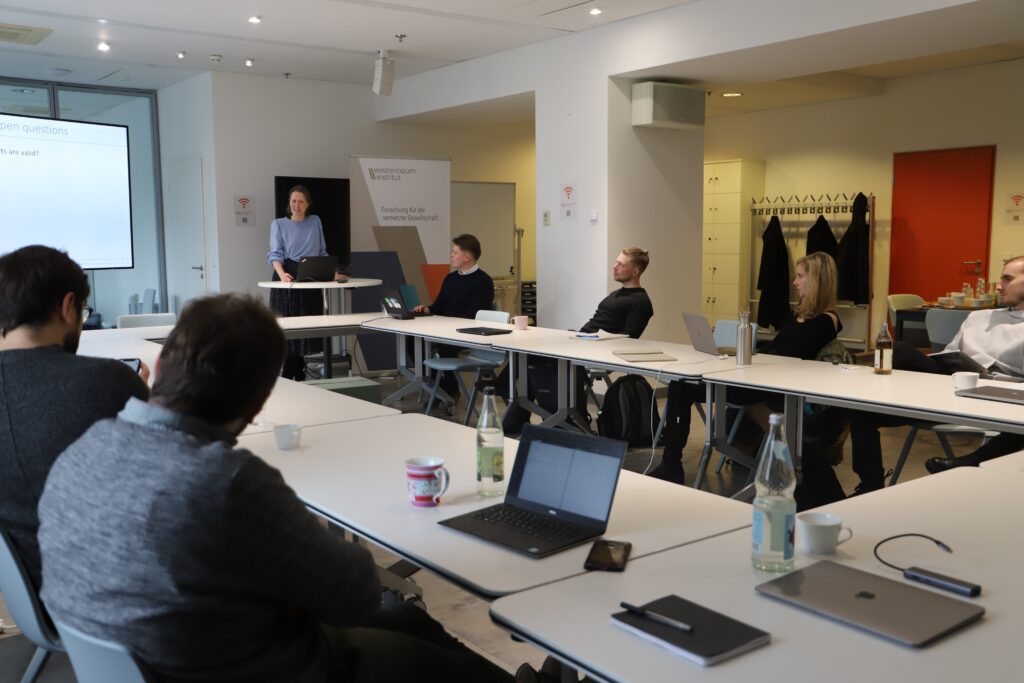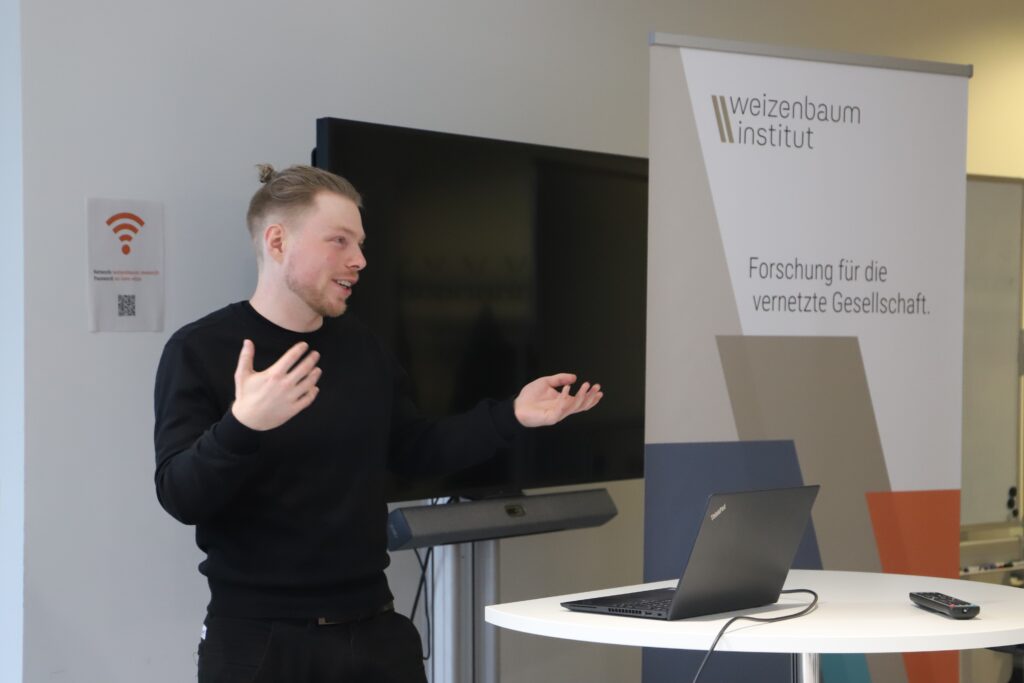Digital and computational data collection and analysis methods such as mobile/internet tracking, experience sampling, web scraping, text mining, machine learning, and image recognition have become more relevant than ever in the social sciences. While these methods enable new avenues of inquiry, they also present many challenges. It is important to share and discuss research, experiences, and challenges surrounding these methods with other researchers to exchange ideas and to learn from experiences.
For this reason, Roland Toth from the Methods Lab and research fellow Douglas Parry organized the Digital Methods Colloquium that took place on December 7 at the Weizenbaum Institute. They invited researchers from all over Germany who had used such methods before. The focus lied on sharing not only successes, but – even more so – the challenges that they had experienced in the research process.

In the first part of the colloquium, participants presented recent or past research projects for which they had used digital methods. The presentations covered various methods, including experience sampling, mobile logging/tracking, multimodal content classification, network analysis, and large language models. All presentations were received very well and led to high engagement with many questions and exchanges from the participants.
The second part of the colloquium was designed to facilitate interactive discussion and knowledge sharing among the participants. They were assigned to one of two discussion groups that focused on either data collection or data analysis in the context of digital methods. In each group, participants followed prompts and discussed urgent issues and possible solutions, which they then visualized using posters. Finally, both groups sat together and presented the posters to each other, leading to a final discussion. After a short wrap-up, some participants joined the hosts at the Christmas Market for a well-deserved hot beverage.

The hosts would like to thank all participants for attending and engaging in the Digital Methods Colloquium. Bringing together researchers from different fields demonstrated that there are more commonalities than differences when it comes to the challenging and exciting field of digital methods. We are looking forward to more exchange and, possibly, Part 2 of the Digital Methods Colloquium sometime in the future.